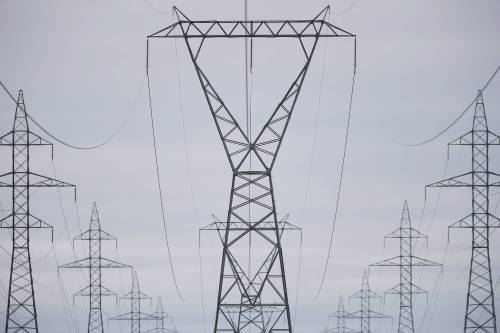Science & Technology
X is a cesspool of misogyny, so why is anyone still on it?
5 minute read Saturday, Jan. 24, 2026Why on earth are people still on X?
The social media platform owned by Elon Musk plunged to horrible new depths earlier this month when Grok, a chatbot integrated within X, was used to produce sexual abuse imagery of women and children — an estimated three million sexualized images in less than two weeks, according to the U.K.’s Center for Countering Digital Hate, including 23,000 images appearing to show children.
This is it, right? This is when everyone abandons X? We all know by now that years of harassment and doxxing campaigns directed at women weren’t enough to sink the cursed app formerly known as Twitter, but surely AI-generated child sexual abuse images is the line, right?
No one should be on X in 2026. Certainly not Canadian politicians, and yet, still they remain.
Advertisement
Weather
Winnipeg MB
-2°C, Cloudy with wind
Disconnect from digital, embrace an analogue life
5 minute read Saturday, Jan. 3, 2026It looks like 2026 is already shaping up to be the year of the analogue.
All over Instagram I’ve seen posts deriding, well, spending all your time on Instagram. People are setting intentions to listen to, read and watch physical media, pick up tactile hobbies such as painting, knitting, collaging and crocheting and buying alarm clocks and timers.
Screen time is out. Reconnecting with real life is in.
Over on TikTok, creators are encouraging people to pack an “analogue bag,” which is just a TikTok trendspeak for “sack of activities.” You can put whatever you want in there, but suggestions include books, journals, puzzles and sketchpads — things that do not require an internet connection or a phone.
An intimate understanding of Oxford’s Word of the Year
5 minute read Saturday, Dec. 6, 2025There is a series of Instagram videos I cannot stop watching.
The American creator makes what can only be described as culinary monstrosities while deliberately mispronouncing ingredients while she’s doing it. Corn is “kern.” Worcestershire is “wash your sister.” Garlic is “garlique.”
This gal loves adding extra vowels to words almost as much as she loves adding a “jizzle” (no thank you) of something or other to her “recipes” which are, like, three tubs of ice cream, a pound of butter and a loaf of white bread on a grill.
These videos make me absolutely incandescent with rage. And yet, I watch them all and forward them to my friends. I can’t tell if these videos are satirical and this woman is actually a brilliant performance artist, but I do know what she’s doing here.
Scam centers in southeast Asia are on the rise despite crackdowns to root out the illegal industry
6 minute read Preview Tuesday, Feb. 10, 2026CBO confirms hack, says it has implemented new security measures
2 minute read Thursday, Nov. 6, 2025WASHINGTON (AP) — The Congressional Budget Office on Thursday confirmed it had been hacked, potentially disclosing important government data to malicious actors.
The small government office, with some 275 employees, provides objective, impartial analysis to support lawmakers during the budget process. It is required to produce a cost estimate for nearly every bill approved by a House or Senate committee and will weigh in earlier when asked to do so by lawmakers.
Caitlin Emma, a spokeswoman for the CBO said in a written statement that the agency “has identified the security incident, has taken immediate action to contain it, and has implemented additional monitoring and new security controls to further protect the agency’s systems going forward.”
The Washington Post first wrote the story on the CBO hack, stating that the intrusion was done by a suspected foreign actor, citing four anonymous people familiar with the situation.
Man accused of economic espionage tells court he was unhappy at Hydro-Québec
4 minute read Preview Tuesday, Feb. 10, 2026Winnipeg elementary school shoots for moon with stuffie design
5 minute read Preview Wednesday, Aug. 27, 2025Green chemist and musician on fighting climate change
7 minute read Preview Saturday, Jul. 19, 2025AtkinsRéalis sells stake in 407 highway, rounding off turn to pure-play engineering
3 minute read Preview Thursday, Mar. 13, 2025Ducks were once a conservation bright spot. Now they’re declining in the US, new report shows
3 minute read Preview Thursday, Mar. 13, 2025One Tech Tip: Wasting too much time on social media apps? Tips and tricks to curb smartphone use
8 minute read Preview Thursday, Mar. 13, 2025Don’t click on those road toll texts. FBI issues fresh warning about the smishing scam
2 minute read Preview Thursday, Mar. 13, 2025Living longer can mean more dementia but there are ways to reduce the risk
4 minute read Monday, Jan. 13, 2025WASHINGTON (AP) — About a million Americans a year are expected to develop dementia by 2060, roughly double today’s toll, researchers reported Monday.
That estimate is based on a new study that found a higher lifetime risk than previously thought: After age 55, people have up to a 4 in 10 chance of eventually developing dementia -- if they live long enough.
It’s a sobering number but there are steps people can take to reduce that risk, such as controlling high blood pressure and other bad-for-the-brain health problems. And it’s not too late to try even in middle age.
“All of our research suggests what you do in midlife really matters,” said Dr. Josef Coresh of NYU Langone Health, who coauthored the study in the journal Nature Medicine.
Living longer can mean more dementia but there are ways to reduce the risk
4 minute read Monday, Jan. 13, 2025WASHINGTON (AP) — About a million Americans a year are expected to develop dementia by 2060, roughly double today’s toll, researchers reported Monday.
That estimate is based on a new study that found a higher lifetime risk than previously thought: After age 55, people have up to a 4 in 10 chance of eventually developing dementia -- if they live long enough.
It’s a sobering number but there are steps people can take to reduce that risk, such as controlling high blood pressure and other bad-for-the-brain health problems. And it’s not too late to try even in middle age.
“All of our research suggests what you do in midlife really matters,” said Dr. Josef Coresh of NYU Langone Health, who coauthored the study in the journal Nature Medicine.
Britain’s leader unveils AI strategy, including vow to rip up red tape hindering AI projects
2 minute read Monday, Jan. 13, 2025LONDON (AP) — The British government pledged on Monday to rip up the red tape hindering construction of data centers that underpin artificial intelligence while promoting its “pro-innovation” approach to regulating the technology.
Prime Minister Keir Starmer hailed the potential of AI as he outlined wide-ranging plans to harness the technology, indicating that it will be a key part of his government’s efforts to “turn around the economy” and jump-start lackluster growth.
Starmer said he wanted to Britain to become “one of the great AI superpowers” that can keep up with other countries like the United States and China that have led advances in the technology.
Under the 50-point plan, which provided few details on investment amounts, the government plans to massively expand public computing power, including by building a new national supercomputer and setting up AI “growth zones” with “streamlined” building approval process.
Britain’s leader unveils AI strategy, including vow to rip up red tape hindering AI projects
2 minute read Monday, Jan. 13, 2025LONDON (AP) — The British government pledged on Monday to rip up the red tape hindering construction of data centers that underpin artificial intelligence while promoting its “pro-innovation” approach to regulating the technology.
Prime Minister Keir Starmer hailed the potential of AI as he outlined wide-ranging plans to harness the technology, indicating that it will be a key part of his government’s efforts to “turn around the economy” and jump-start lackluster growth.
Starmer said he wanted to Britain to become “one of the great AI superpowers” that can keep up with other countries like the United States and China that have led advances in the technology.
Under the 50-point plan, which provided few details on investment amounts, the government plans to massively expand public computing power, including by building a new national supercomputer and setting up AI “growth zones” with “streamlined” building approval process.
LOAD MORE










